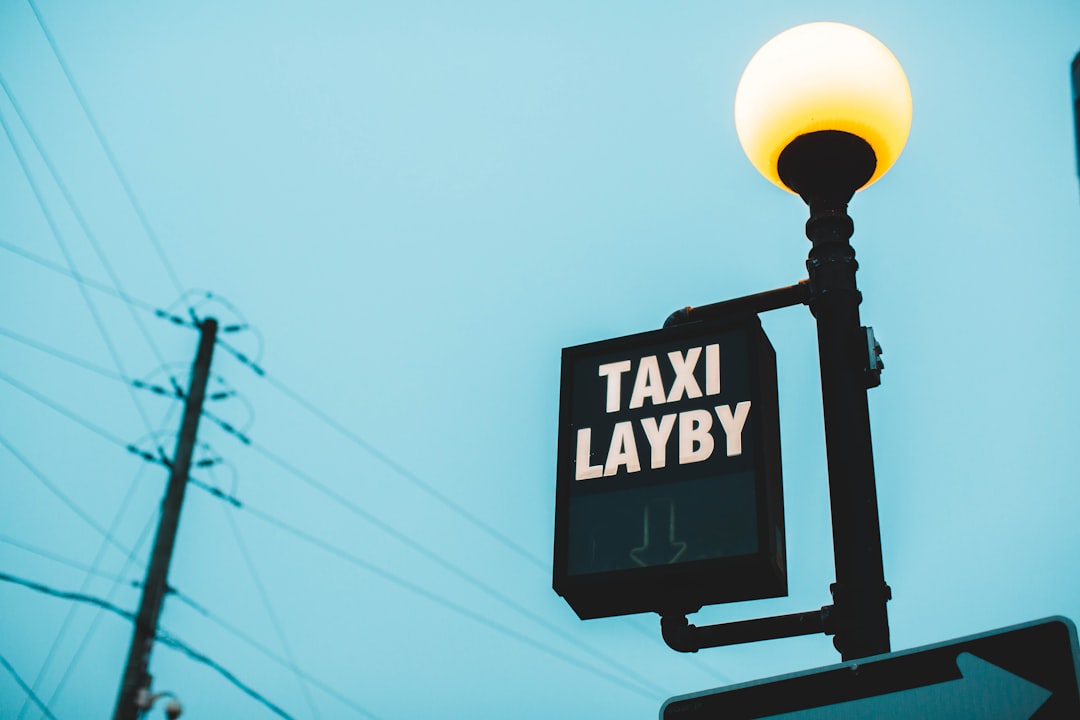From Apps to Audiobooks The Nomads Learning Kit

Introduction
Living a location‑independent life means constantly balancing work, travel, and personal growth. The freedom to set your own schedule opens up a world of learning possibilities, but it also creates a paradox: the very flexibility that fuels creativity can also scatter attention. A well‑curated learning kit solves that problem by gathering the most effective digital tools, audio experiences, written works, and structured courses into one portable collection.
From productivity‑boosting apps that keep you connected to the internet, to audiobooks that turn long bus rides into deep‑dive learning sessions, the Nomads Learning Kit is designed to fit inside a backpack, a phone, or a cloud folder. It is not a random assortment of resources; each item has been selected for its relevance to nomadic lifestyles, its offline capability, and its ability to spark skill development without sacrificing the joy of travel.
In this guide you will discover:
- The essential apps for communication, finance, and workflow management while on the move.
- A curated list of audiobooks that cover entrepreneurship, language acquisition, and personal development.
- Must‑read books that provide timeless insights for remote workers and global citizens.
- Podcasts that deliver fresh perspectives on technology, culture, and the nomadic mindset.
- Online courses that can be completed on a flexible schedule, with downloadable content for low‑bandwidth environments.
By the end of the article you will have a ready‑to‑use learning kit that can be customized to your own interests and goals.
Core Apps for the Mobile Nomad
Communication and Collaboration
Staying in touch with clients, teammates, and friends is non‑negotiable for most digital nomads. The following apps excel at low‑data usage, cross‑platform sync, and offline functionality.
Signal – End‑to‑end encrypted messaging that works on iOS, Android, and desktop. Its lightweight design means it runs smoothly even on 2G connections.
Slack – The de‑facto standard for team collaboration. Use the “offline mode” to draft messages and read cached channels when you lose connectivity, then send everything once you’re back online.
Zoom – For video calls, Zoom’s “audio‑only” option conserves bandwidth while preserving face‑to‑face interaction. The “local recording” feature lets you capture meetings without needing cloud storage.
Project Management
Keeping projects organized across time zones is a challenge. Choose a tool that syncs instantly and offers offline boards.
Trello – Card‑based boards that can be edited offline and sync automatically when you reconnect. Its free tier is generous enough for most freelancers.
Notion – All‑in‑one workspace that combines notes, databases, and task lists. Notion’s “offline mode” works on desktop and mobile, allowing you to continue writing even without internet.
Asana – For larger teams, Asana’s timeline view provides a visual roadmap. The mobile app stores a cache of tasks so you can check deadlines on the go.
Finance and Currency
Traveling means dealing with multiple currencies, tax regulations, and fluctuating exchange rates. Reliable finance apps keep your money safe and your budgeting transparent.
Revolut – Multi‑currency account with real‑time exchange rates, budgeting analytics, and a virtual card for online purchases.
Wise – Low‑cost international transfers and a borderless account that supports 50+ currencies. The app lets you lock in rates for future transfers, useful for planning long‑term stays.
YNAB (You Need A Budget) – A proactive budgeting system that works offline and syncs when you have a connection. The philosophy of assigning every dollar a job aligns well with a nomadic income stream.
Cloud Storage and File Access
Your work files need to travel with you, but not all destinations have reliable Wi‑Fi. Choose storage solutions that provide selective sync and offline access.
Google Drive – Offers “offline mode” for Docs, Sheets, and Slides on desktop and Android. Files you mark for offline use remain accessible even in remote mountain cabins.
Dropbox – Smart Sync lets you view all files while only keeping selected ones on your device. The mobile app’s “offline folders” feature is perfect for pre‑downloading work assets before a long flight.
pCloud – Lifetime storage plans and an encrypted “pCloud Crypto” folder for sensitive documents. The desktop client has a “virtual drive” option that mirrors your cloud without taking up local space.
Health, Safety, and Navigation
A nomadic lifestyle can be physically demanding. Health‑focused apps help you stay fit, while navigation tools keep you safe in unfamiliar territories.
MyFitnessPal – Tracks calories, macros, and exercise. Its database works offline once you have logged meals, making it handy when you’re in a country with limited data.
First Aid by American Red Cross – Offline first‑aid instructions and emergency checklists. The app includes location‑specific emergency numbers for many countries.
Maps.me – Fully offline maps with searchable POIs, hiking trails, and public transport routes. Download the region you’re traveling to before you lose connectivity.
Language Learning
Learning the local language can turn a tourist experience into an immersive adventure. Choose apps that work offline and offer spaced‑repetition systems.
Duolingo – Bite‑size lessons with a gamified approach. The “offline mode” allows you to continue lessons without internet, then syncs progress later.
Anki – Customizable flashcard decks with algorithmic spaced repetition. Anki’s desktop version can export decks to mobile for on‑the‑road study.
Memrise – Community‑created courses that focus on real‑world phrases. The “offline mode” caches audio and text for later review.
Essential Audiobooks for the Road
Audiobooks turn idle travel time into a learning opportunity. Below is a curated selection that addresses the core themes of a nomadic life: entrepreneurship, cultural awareness, productivity, and personal growth. All titles are available on platforms that support offline downloads, such as Audible, Scribd, or Google Play Books.
Entrepreneurship and Remote Work
“The 4‑Hour Workweek” by Timothy Ferriss – A classic manifesto for designing a location‑independent business. Ferriss outlines tactics for automating income streams, outsourcing tasks, and escaping the traditional office grind.
“Remote: Office Not Required” by Jason Fried and David Heinemeier Hansson – The founders of Basecamp share insights on building a fully remote company, covering communication protocols, trust building, and hiring practices that work across borders.
“Atomic Habits” by James Clear – While not strictly about entrepreneurship, this book teaches habit‑stacking techniques that help remote workers maintain consistency, focus, and continuous improvement.
Cultural Intelligence and Travel
“The Art of Travel” by Alain de Botton – A philosophical exploration of why we travel and how we can derive deeper meaning from new experiences.
“Sapiens: A Brief History of Humankind” by Yuval Noah Harari – Provides a macro‑historical perspective that enriches conversations with locals and helps you understand cultural narratives.
“The Geography of Bliss” by Eric Weiner – A journalist’s quest to discover the happiest places on Earth, blending travelogue with psychological research.
Personal Development and Mindfulness
“Mindset: The New Psychology of Success” by Carol S. Dweck – Explores the growth versus fixed mindset, a concept that fuels adaptability and resilience—key traits for nomads.
“Digital Minimalism” by Cal Newport – Offers strategies to reduce digital clutter, reclaim focus, and design a tech‑friendly lifestyle that aligns with a mobile existence.
“The Power of Now” by Eckhart Tolle – A guide to staying present, especially valuable when constant movement can create a sense of perpetual distraction.
Skill‑Specific Audio Learning
“Python Crash Course” (Audio Edition) by Eric Matthes – An introduction to programming that can be listened to while commuting, with exercises that you can later implement on a laptop.
“How to Talk to Anyone” by Leil Lowndes – Practical social skills that help you build rapport in new cultures and networking events.
“The Creative Habit” by Twyla Tharp – Tips for nurturing creativity on the road, from daily rituals to spontaneous idea generation.
Must‑Read Books for the Nomadic Mindset
Printed or e‑books provide depth that audiobooks sometimes cannot. The following titles are essential reading for anyone who wants to turn a wandering lifestyle into a purposeful journey.
Foundational Business and Lifestyle
“The $100 Startup” by Chris Guillebeau – Shows how to launch micro‑businesses with minimal capital, using case studies from people who have built profitable ventures while traveling.
“Vagabonding: An Uncommon Guide to the Art of Long‑Term Travel” by Rolf Potts – A manifesto that encourages intentional, extended travel as a path to self‑discovery and freedom.
Technology and Future Trends
“The Inevitable” by Kevin Kelly – A forward‑looking exploration of twelve technological forces shaping the next thirty years, helping nomads anticipate future work models.
“Deep Work” by Cal Newport – Provides a framework for achieving high‑quality output in distraction‑heavy environments, a valuable skill for anyone working from cafés or co‑working spaces.
Psychology and Human Behavior
“Thinking, Fast and Slow” by Daniel Kahneman – An examination of the two systems that drive our thoughts, essential for making better decisions while navigating unfamiliar cultures.
“Drive: The Surprising Truth About What Motivates Us” by Daniel H. Pink – Helps you understand intrinsic motivation, a key component of sustaining self‑directed work across time zones.
Creative Exploration
“Steal Like an Artist” by Austin Kleon – Encourages the practice of borrowing ideas ethically and remixing them into original creations, a habit that fuels content creation on the road.
“Show Your Work!” by Austin Kleon – A companion to “Steal Like an Artist,” this book outlines simple steps for building an audience while traveling.
Health and Well‑Being
“Why We Sleep” by Matthew Walker – Offers scientific insights into the importance of sleep, crucial for maintaining productivity when jet‑lagged or living in varying climates.
“The Body Keeps the Score” by Bessel van der Kolk – Provides tools for processing stress and trauma, valuable for nomads who may encounter challenging environments.
Podcasts that Fuel the Nomadic Spirit
Audio content is a perfect companion for flights, long bus rides, or quiet evenings in a hostel. The podcasts below are curated for their relevance to remote work, travel, technology, and personal growth.
Remote Work and Entrepreneurship
“The Tim Ferriss Show” – Interviews with world‑class performers, entrepreneurs, and investors. Ferriss extracts actionable tactics that can be applied to a location‑independent career.
“Side Hustle School” – Daily episodes that outline a new side‑hustle idea in under ten minutes, perfect for quick inspiration during a coffee break.
“Remote Work Podcast” – Hosted by freelancers who discuss tools, client acquisition, and lifestyle design from a nomadic perspective.
Travel and Culture
“Zero To Travel” – Host Jason Moore explores travel hacks, budgeting, and stories from digital nomads around the globe.
“The Travel Diaries” – Features conversations with travelers, writers, and explorers about the moments that changed their lives.
“Culture Shock” – A deep dive into cultural nuances, etiquette, and the challenges of living abroad, hosted by a cross‑cultural psychologist.
Technology and Future Trends
“Reply All” – A podcast about internet culture, technology, and how digital trends affect everyday life.
“The Vergecast” – Weekly discussion on the latest tech news, gadgets, and industry shifts that impact remote work tools.
“Exponential View” – A futurist’s take on AI, biotech, and emerging technologies, with insights useful for forward‑thinking nomads.
Personal Development
“The Happiness Lab” – Dr. Laurie Santos shares research‑based strategies for improving well‑being, often with a focus on adaptability and resilience.
“The School of Greatness” – Interviews with athletes, entrepreneurs, and thought leaders about habits, mindset, and purpose.
“10% Happier” – Mindfulness and meditation techniques presented in a pragmatic, non‑spiritual way, ideal for busy travelers.
Online Courses Tailored for Mobile Learners
Formal learning does not have to be tied to a classroom. Many platforms now offer courses that can be downloaded for offline study, use minimal bandwidth, and provide certificates that enhance your professional profile.
Platforms with Offline Capabilities
Coursera – Allows you to download video lectures and reading materials through its mobile app. Many courses are part of “Specializations” that culminate in a capstone project.
Udemy – One‑time purchase courses that can be fully downloaded onto a device, making it ideal for low‑connectivity environments.
Skillshare – Subscription‑based model with short, project‑focused classes. The mobile app caches videos for offline playback.
Recommended Courses for Nomads
“Digital Marketing Specialization” (University of Illinois) – Coursera – Covers SEO, social media, analytics, and content strategy—skills essential for promoting a remote business.
“Project Management Principles and Practices” – Coursera – A practical series that teaches agile and waterfall methodologies, useful for managing client projects across time zones.
“Python for Everybody” – Coursera – An entry‑level programming course that equips you with automation skills, allowing you to build scripts that save time while traveling.
“Freelance Writing: How to Earn a Living as a Writer” – Udemy – Guides you through finding niches, pitching clients, and setting rates, a valuable resource for content creators on the move.
“Travel Photography: Capture the World” – Skillshare – Teaches composition, lighting, and editing techniques, helping you turn travel moments into a monetizable portfolio.
“Mindful Leadership” – Coursera (University of California, Davis) – Combines mindfulness practices with leadership principles, supporting the development of a calm, decisive mindset in uncertain environments.
Tips for Maximizing Course Benefits
-
Download in advance – When you have reliable Wi‑Fi (e.g., at a co‑working space or café), download all video lectures, PDFs, and assignments.
-
Set micro‑learning goals – Break a 10‑hour course into 15‑minute daily segments that fit into a travel schedule.
-
Apply immediately – Use real‑world projects (client work, personal blog, side‑hustle) as a testing ground for new concepts, reinforcing retention.
-
Leverage community forums – Many platforms host discussion boards. Engaging with peers can provide accountability and cultural perspectives.
Building Your Personalized Nomads Learning Kit
A learning kit is most effective when it reflects your unique interests, career goals, and travel style. Below is a step‑by‑step process for assembling a kit that you can carry in a digital “backpack.”
Step 1: Identify Core Objectives
Write down three to five short‑term goals (e.g., “launch a consulting service,” “learn conversational Spanish,” “improve video editing skills”). Also note long‑term aspirations (e.g., “live in three continents within five years,” “publish a travel memoir”).
Step 2: Choose a Central Hub
Select one device or service that will serve as the hub for all resources. Most nomads prefer a combination of a smartphone and a lightweight laptop or tablet. Ensure the device has sufficient storage (at least 256 GB) and supports offline apps.
Step 3: Populate the App Section
Using the list of core apps above, install those that align with your objectives. For example, if you plan to start a consulting service, install Calendly for scheduling, Stripe for payments, and Trello for project tracking.
Step 4: Curate Audiobook and Podcast Playlists
Create playlists on your preferred platform (Audible, Spotify, Apple Podcasts). Group them by theme: “Business Growth,” “Cultural Insight,” “Mindfulness.” Download all episodes before a long journey.
Step 5: Assemble the Reading Library
Use a cloud‑based e‑reader (Kindle, Google Play Books) to store PDFs and ePub files. For printed books, consider a compact travel‑size edition of each title. Organize them on a reading list that mirrors your goal hierarchy.
Step 6: Enroll in Online Courses
Enroll in at least one course that directly supports each short‑term objective. Download the full course content to your hub device. Set a deadline for completing each module, and add reminders to your calendar.
Step 7: Set Up Offline Access
For every app, enable offline mode. For Google Drive, mark essential folders as “available offline.” For language apps, download the lesson packs for the languages you’ll need. Test each offline feature before you leave a reliable Wi‑Fi zone.
Step 8: Create a Weekly Review Routine
Dedicate a fixed time each week (e.g., Sunday evening) to review progress. Use a note‑taking app like Notion to log what you completed, what you learned, and what adjustments are needed.
Step 9: Backup Regularly
Store a copy of your digital kit on a secondary cloud service (e.g., Dropbox) and on an external SSD. This redundancy protects you from device loss or corruption while traveling.
Step 10: Iterate and Refine
Every month, reassess the relevance of each resource. Remove items that no longer serve your goals and add new ones that align with emerging interests or market trends.
Practical Tips for Using the Kit on the Road
Embrace Low‑Bandwidth Environments – When traveling to remote areas, prioritize resources that have already been downloaded. Use a portable Wi‑Fi hotspot or a local SIM card only for essential syncs.
Leverage Time Zones – Schedule deep‑work sessions during off‑peak hours in your destination’s time zone. This reduces distractions and aligns your availability with clients in other regions.
Stay Organized with Tags – In Notion or Trello, tag tasks with “Travel,” “Work,” “Learning,” and “Health.” This visual categorization helps you shift focus quickly as circumstances change.
Protect Your Devices – Invest in a sturdy waterproof case and a universal power bank. A solar charger can be a lifesaver when you’re off the grid for days.
Maintain a Healthy Routine – Use the MyFitnessPal app to log meals and the Headspace or Insight Timer app for short meditation sessions. Even five minutes of breathing exercises can reset your mental state after a long journey.
Network Locally – Attend meet‑ups through platforms like Meetup or Eventbrite. Bring a digital business card (e.g., a QR code linking to your LinkedIn profile) to exchange contact information quickly.
Document Your Journey – Keep a travel journal in Notion or a physical notebook. Recording insights, challenges, and successes reinforces learning and creates material for future content creation.
Frequently Asked Questions
Do I need a high‑end laptop for the learning kit?
Not necessarily. Many of the recommended apps and courses run smoothly on a mid‑range laptop or a powerful tablet. The key is sufficient storage for offline content and a reliable keyboard for typing.
How much data will I consume using these resources?
If you download all audiobooks, podcasts, and course videos while on Wi‑Fi, your ongoing data usage will be minimal—mostly for syncing notes and occasional email.
Can I share the kit with other travelers?
Yes, as long as you respect licensing agreements for audiobooks and courses. Many platforms allow family sharing or multiple device activation under a single subscription.
What if I lose internet connectivity for an extended period?
Because the kit is built around offline functionality, you can continue reading, listening, and working without a connection. Only cloud syncs and real‑time communication will be paused.
How do I keep the kit from becoming overwhelming?
Stick to the weekly review routine. Trim resources that you haven’t used in the past month. Focus on a handful of high‑impact items rather than trying to consume everything at once.
Conclusion
A nomadic lifestyle offers unparalleled freedom, but it also demands intentional structure to turn that freedom into growth. The Nomads Learning Kit—comprised of essential apps, curated audiobooks, timeless books, insightful podcasts, and flexible online courses—provides the scaffolding needed to learn, work, and thrive wherever the road leads.
By selecting tools that work offline, aligning resources with clear goals, and maintaining a disciplined review process, you transform idle travel time into a continuous education journey. The kit is not a static checklist; it is a living system that evolves with your aspirations, the technologies you adopt, and the cultures you encounter.
Take the steps outlined above, tailor the kit to your personal mission, and let each destination become a classroom, each conversation a lesson, and each sunrise an opportunity to deepen your expertise. The world is your campus—make the most of it.
Random Posts

Connecting Wanderers and Building a Thriving Online Digital Nomad Community
Join a vibrant online hub where digital nomads turn isolation into collaboration, share trusted resources, and build lasting connections that turn solo travel into a supportive community.
3 weeks ago

Financial Freedom Guide to Residency Options and Tax Planning for Travelers
Learn how nomadic professionals can pick the right residency, handle cross-border taxes and use offshore tools to create a tax-efficient home base and achieve real financial freedom
1 month ago

Ultimate Nomad Handbook for Beginners
Turn wanderlust into reality with a clear step by step roadmap. Learn the nomad mindset, essential tools, and avoid common pitfalls so you can launch and sustain a life of freedom on the move.
1 month ago

Healthy Eating Adventures For Travelers Who Work Anywhere
Discover how to eat well while working from any city, beach or mountain. This guide gives practical tips to plan, shop, cook and stay energized, focused and healthy on the road.
2 months ago

Top Resources Every Aspiring Nomad Should Know
Discover the ultimate toolkit for future digital nomads: vetted visa guides, budgeting apps, remote-work platforms, cloud storage tips and gear reviews, all in one concise reference to launch your location-independent life.
1 month ago
Latest Posts

Essential Software Every Remote Professional Should Use
Master remote work with essential tools: instant messaging like Slack, high definition video calls such as Zoom, and asynchronous voice apps. Streamline communication, stay connected and boost productivity.
1 day ago

Mastering Remote Work Productivity for Digital Nomads and Freelancers
Learn proven habits, tools, and tactics that help digital nomads and freelancers stay focused, deliver quality work, and maintain a sustainable lifestyle while traveling the world.
1 day ago

Tech‑Friendly European Towns Perfect for Remote Living
Discover Europe’s best small towns where fast internet, affordable living and vibrant tech communities let you work remotely while soaking up historic charm, lakeside views or mountain air.
1 day ago